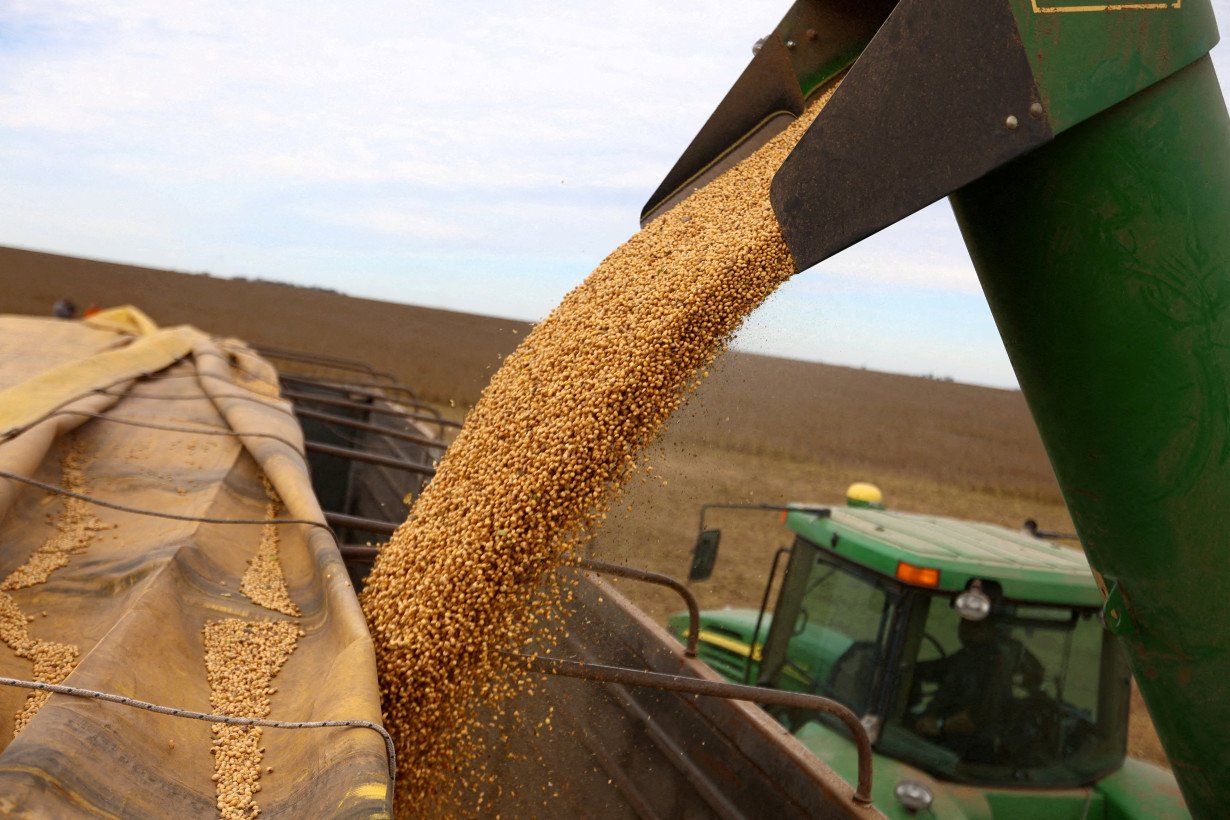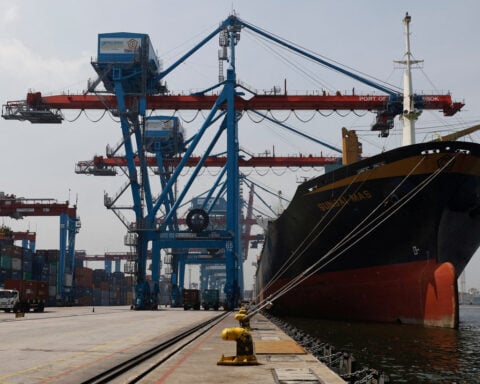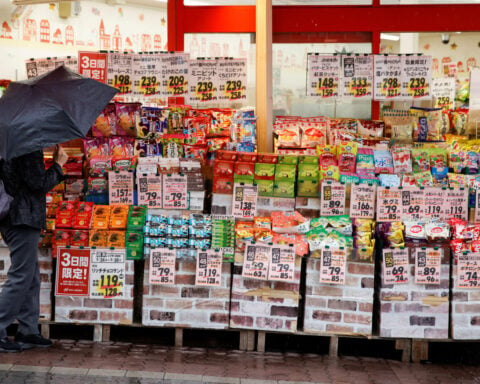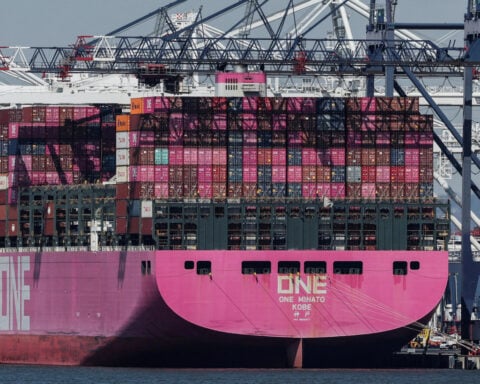By Maximilian Heath
BUENOS AIRES (Reuters) -Drenched Argentine fields due to heavy rains in the country's farm heartland are raising fears of soybean losses and delayed sales of the 2024/25 crop, although drier weather on the horizon should bring relief to producers, industry experts said.
Argentina is the world's top exporter of soybean oil and meal, but combines are having difficulty entering waterlogged fields to begin harvesting following heavy rains in March and storms last week.
On Thursday, the Buenos Aires grains exchange reported that the 2024/25 soybean harvest, estimated at 48.6 million tons, is 4 percentage points behind the average harvesting pace of the last five years.
"The environment is very oversaturated. Harvesting this week had a terrible level of humidity. There was fog, mist. Everything was wet," Germán Heinzenknecht, a meteorologist with the Applied Climatology Consulting Firm, told Reuters.
Many fields and access roads in key agricultural areas are impassable, which, according to Cristian Russo, head of agricultural estimates at the major Rosario grains exchange, is generating concerns among farmers.
"There is fear, and people are trying to access the fields by any means. There's a risk with the humidity of getting rot (fungus) and there will be a discount on quantity and quality," said Russo.
He added that there was also a risk that if the plants are not harvested soon, the pods will split open.
SOY SALES AT SLOWEST PACE IN 10 YEARS
The difficulties in advancing the grain harvest have also caused delays in 2024/25 soybean sales in Argentina, which as of April 2 recorded the slowest sales pace in the last 10 years, with only about 20% of the estimated harvest sold.
The immediate forecasts show no improvement for rural areas. On Thursday, the Rosario exchange indicated that unstable conditions with likely rain are expected for the coming days.
However, Heinzenknecht said there are reasons for producers to be more optimistic from next week.
"We have humidity problems, but we are not seeing a consolidation of soil problems," he said.
"Starting next week, we could enter a slightly more virtuous cycle. We're going into a second half of April with a slightly drier climate, with less significant rainfall," he said.
(Reporting by Maximilian Heath; Editing by Adam Jourdan and Nia Williams)

 Trump has begun another trade war. Here's a timeline of how we got here
Trump has begun another trade war. Here's a timeline of how we got here
 Canada's leader laments lost friendship with US in town that sheltered stranded Americans after 9/11
Canada's leader laments lost friendship with US in town that sheltered stranded Americans after 9/11
 Chinese EV giant BYD's fourth-quarter profit leaps 73%
Chinese EV giant BYD's fourth-quarter profit leaps 73%
 You're an American in another land? Prepare to talk about the why and how of Trump 2.0
You're an American in another land? Prepare to talk about the why and how of Trump 2.0
 Chalk talk: Star power, top teams and No. 5 seeds headline the women's March Madness Sweet 16
Chalk talk: Star power, top teams and No. 5 seeds headline the women's March Madness Sweet 16
 Purdue returns to Sweet 16 with 76-62 win over McNeese in March Madness
Purdue returns to Sweet 16 with 76-62 win over McNeese in March Madness








